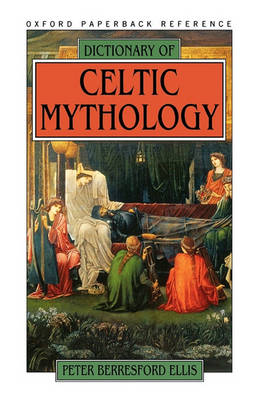Guides S.
2 total works
A fascinating and accessible guide to the gods and goddesses, heroes and heroines, magical weapons, fabulous beasts, and otherworld entities of Celtic Mythology.
Predated only by Greek and Roman legend by virtue of the fact that the Celtic languages were not written until the early Christian era, Celtic mythology developed from a far earlier oral tradition, which preserves voices from the dawn of European civilization. The peoples of these Celtic cultures survive today on the western seaboard of Europe: the Irish, Manx, and Scots who make up the Goidelic (Gaelic) speaking branch of Celts, and the Welsh, Cornish, and Bretons, who represent the Byrthonic-speaking branch.
In his introduction, Ellis discusses the roles of these six cultures, the evolution (or demise) of the languages, and the relationship between the legends, especially the Irish and Welsh, the two major Celtic cultures. The Dictionary of Celtic Mythology is an easy to read handbook, and presents a fascinating window to centuries of rich oral and written tradition from the mists of Europe's origins.

